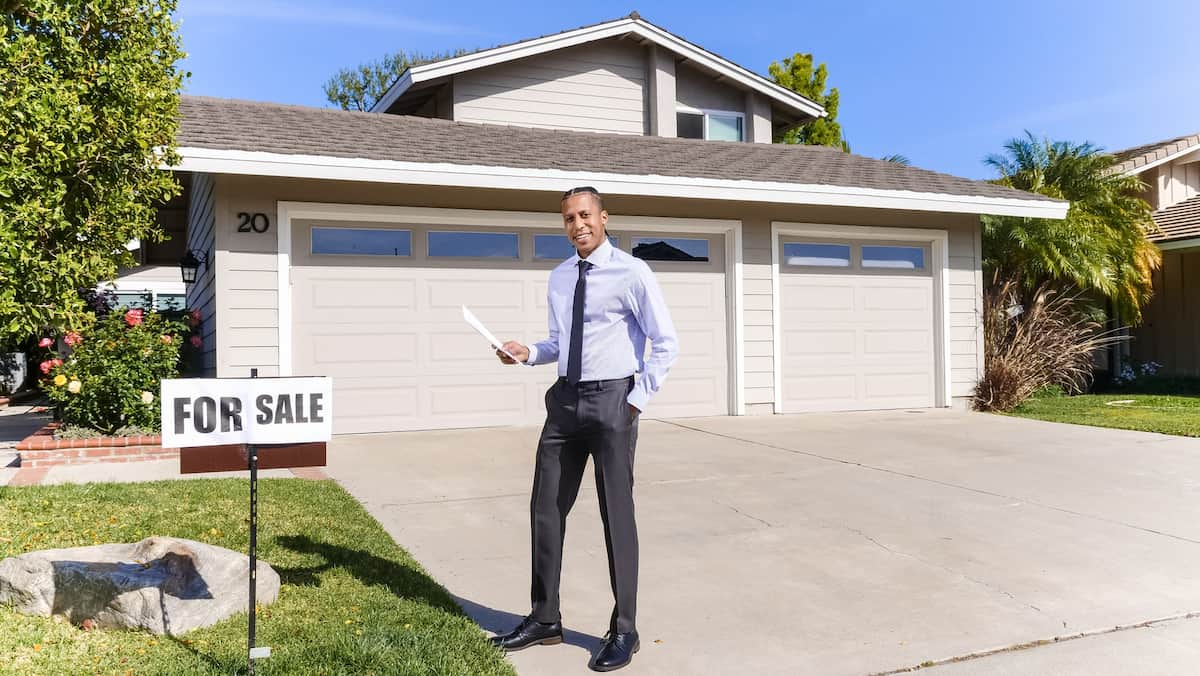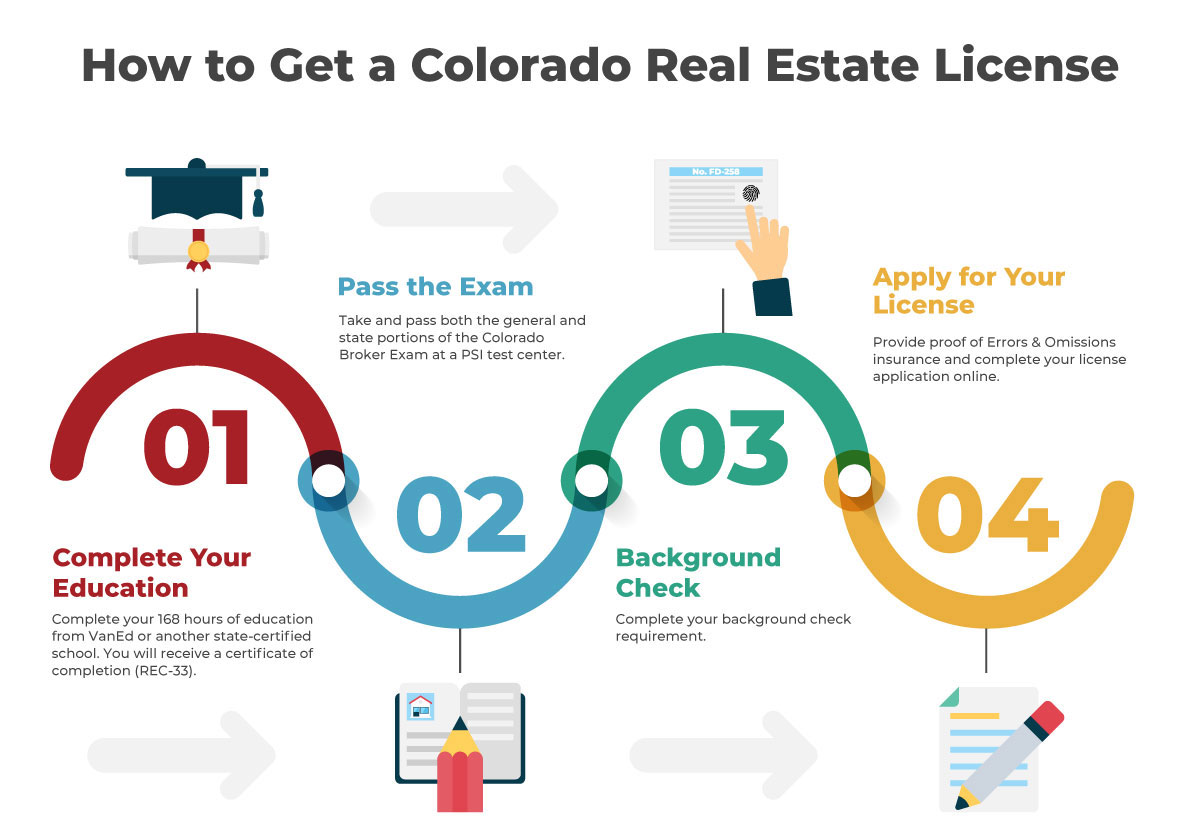
If you're thinking about getting a real estate license in Georgia, here's what you need to know. This article will explain the requirements, prerequisites, and exam that you need to pass before you can submit your application. You'll also learn about the online options available to help you study. Let's now move on to some tips that will help you pass the exam. You will soon have the ability to sell Georgian real estate.
Prerequisites
There are very few requirements for obtaining a Georgia real-estate license. You must have completed a minimum of 75 hours of college-level courses. You can choose to take these classes in the classroom or online. You will need to complete either six semester-length, or ten quarter length courses. No matter whether you prefer to take your courses online, or in the classroom setting, you must complete at least 75 hours in coursework in real estate and agency. The coursework must be accredited. You must submit official transcripts if you have taken a real estate course in another state.
You will need to pass an exam in order to become a licensed real estate agent in Georgia. If you are willing to work hard, the exam will cost around $115. Once you have passed the exam you will need to complete a licensing application at the Georgia real property commission. The commission will ask for fingerprints and run background checks. You should enroll in a real estate test prep class to make sure you are current on all state requirements.

Exam
First of all, you should know that the exam for real estate license in Georgia costs $115. This price may seem high, but it's well worth it. After passing the exam, the Georgia real property commission will require you to complete an application. The commission will conduct a background check and ask for your fingerprints. The purpose of this step is to ensure that the information on your file is current and up to date.
You can prepare for the exam by enrolling in a Georgia real estate school. You can choose to take the online course, which is typically 75 hours long, or you can opt to take a classroom course. Online courses are typically more efficient in terms of time because you can work at your pace and plan your time. To apply to a license, one must be at minimum 21 years old. To apply for a license you must have a highschool diploma or GED. Additionally, you must not have any criminal convictions.
Requirements
Before you start the application process, you should understand the requirements for a Georgia real estate license. You should know that the state of Georgia has a high pass rate. For the exam to be passed, you need to have completed at least six semester hours (or ten quarter) of credit in contracting, agency, and real estate. However, if you don't finish the courses in time, you can retake them as many times as you need to.
An approved Broker Prelicense course must be completed before you are allowed to take the test. This course must run for at least 60-hours and include a proctored exam. Georgia MLS Real Estate School (one of these approved institutions) is one example. This school will provide all the training that you need to pass your exam. If you pass the exam, you can apply in Georgia for your real estate license. Follow these steps to get your license.

Online options
There are many online options to apply for a Georgia license. RealEstateU is the best and most cost-effective option. This school offers a 75-hour approved curriculum that has helped more than 40,000 agents in the U.S. The course includes everything you need to know about real estate eBooks and the pre-license course. The course also comes with instructor support, exam prep, and a pass-or-don't-pay guarantee.
Barney Fletcher Schools, an online school, specializes in Georgia real-estate education. Students have a variety of options, including self-paced and online classes as well as live classes via webinar. Students are provided with access to instructors, interactive tools, and live tutoring throughout the course. This program is ideal for agents looking to get a license, or those who have been working as agents for years and want to continue their education. Kaplan is a more expensive option, but it offers excellent online support.
FAQ
What should I be looking for in a mortgage agent?
A mortgage broker assists people who aren’t eligible for traditional mortgages. They compare deals from different lenders in order to find the best deal for their clients. This service may be charged by some brokers. Others offer no cost services.
How do I get rid termites & other pests from my home?
Your home will be destroyed by termites and other pests over time. They can cause damage to wooden structures such as furniture and decks. This can be prevented by having a professional pest controller inspect your home.
Should I rent or buy a condominium?
Renting may be a better option if you only plan to stay in your condo a few months. Renting will allow you to avoid the monthly maintenance fees and other charges. However, purchasing a condo grants you ownership rights to the unit. The space is yours to use as you please.
Can I afford a downpayment to buy a house?
Yes! Yes. There are programs that will allow those with small cash reserves to purchase a home. These programs include FHA, VA loans or USDA loans as well conventional mortgages. You can find more information on our website.
What's the time frame to get a loan approved?
It depends on several factors such as credit score, income level, type of loan, etc. It typically takes 30 days for a mortgage to be approved.
Statistics
- This means that all of your housing-related expenses each month do not exceed 43% of your monthly income. (fortunebuilders.com)
- Over the past year, mortgage rates have hovered between 3.9 and 4.5 percent—a less significant increase. (fortunebuilders.com)
- When it came to buying a home in 2015, experts predicted that mortgage rates would surpass five percent, yet interest rates remained below four percent. (fortunebuilders.com)
- 10 years ago, homeownership was nearly 70%. (fortunebuilders.com)
- Some experts hypothesize that rates will hit five percent by the second half of 2018, but there has been no official confirmation one way or the other. (fortunebuilders.com)
External Links
How To
How to Manage A Rental Property
Although renting your home is a great way of making extra money, there are many things you should consider before you make a decision. These tips will help you manage your rental property and show you the things to consider before renting your home.
If you're considering renting out your home, here's everything you need to know to start.
-
What do I need to consider first? Consider your finances before you decide whether to rent out your house. You may not be financially able to rent out your house to someone else if you have credit card debts or mortgage payments. It is also important to review your budget. If you don't have enough money for your monthly expenses (rental, utilities, and insurance), it may be worth looking into your options. You might find it not worth it.
-
How much will it cost to rent my house? There are many factors that go into the calculation of how much you can charge to let your home. These factors include location, size, condition, features, season, and so forth. It's important to remember that prices vary depending on where you live, so don't expect to get the same rate everywhere. The average market price for renting a one-bedroom flat in London is PS1,400 per month, according to Rightmove. If you were to rent your entire house, this would mean that you would earn approximately PS2,800 per year. That's not bad, but if you only wanted to let part of your home, you could probably earn significantly less.
-
Is it worthwhile? There are always risks when you do something new. However, it can bring in additional income. Before you sign anything, though, make sure you understand exactly what you're getting yourself into. Renting your home won't just mean spending more time away from your family; you'll also need to keep up with maintenance costs, pay for repairs and keep the place clean. Before you sign up, make sure to thoroughly consider all of these points.
-
What are the benefits? Now that you have an idea of the cost to rent your home, and are confident it is worth it, it is time to consider the benefits. Renting your home is a great way to get out of the grind and enjoy some peace from your day. It's more fun than working every day, regardless of what you choose. If you plan well, renting could become a full-time occupation.
-
How can I find tenants? After you have made the decision to rent your property out, you need to market it properly. Start by listing online using websites like Zoopla and Rightmove. Once you receive contact from potential tenants, it's time to set up an interview. This will help you evaluate their suitability as well as ensure that they are financially secure enough to live in your home.
-
What can I do to make sure my home is protected? If you're worried about leaving your home empty, you'll need to ensure you're fully protected against damage, theft, or fire. In order to protect your home, you will need to either insure it through your landlord or directly with an insured. Your landlord will likely require you to add them on as additional insured. This is to ensure that your property is covered for any damages you cause. If you are not registered with UK insurers or if your landlord lives abroad, however, this does not apply. In such cases you will need a registration with an international insurance.
-
Sometimes it can feel as though you don’t have the money to spend all day looking at tenants, especially if there are no other jobs. It's important to advertise your property with the best possible attitude. Make sure you have a professional looking website. Also, make sure to post your ads online. A complete application form will be required and references must be provided. While some people prefer to handle everything themselves, others hire agents who can take care of most of the legwork. You'll need to be ready to answer questions during interviews.
-
What should I do after I have found my tenant? If you have a lease in place, you'll need to inform your tenant of changes, such as moving dates. You may also negotiate terms such as length of stay and deposit. Remember that even though you will be paid at the end of your tenancy, you still have to pay utilities.
-
How do you collect the rent? You will need to verify that your tenant has actually paid the rent when it comes time to collect it. You will need to remind your tenant of their obligations if they don't pay. You can deduct any outstanding payments from future rents before sending them a final bill. If you're struggling to get hold of your tenant, you can always call the police. The police won't ordinarily evict unless there's been breach of contract. If necessary, they may issue a warrant.
-
How can I avoid potential problems? You can rent your home out for a good income, but you need to ensure that you are safe. Install smoke alarms, carbon monoxide detectors, and security cameras. Also, make sure you check with your neighbors to see if they allow you to leave your home unlocked at night. You also need adequate insurance. You should never allow strangers into your home, no matter how they claim to be moving in.